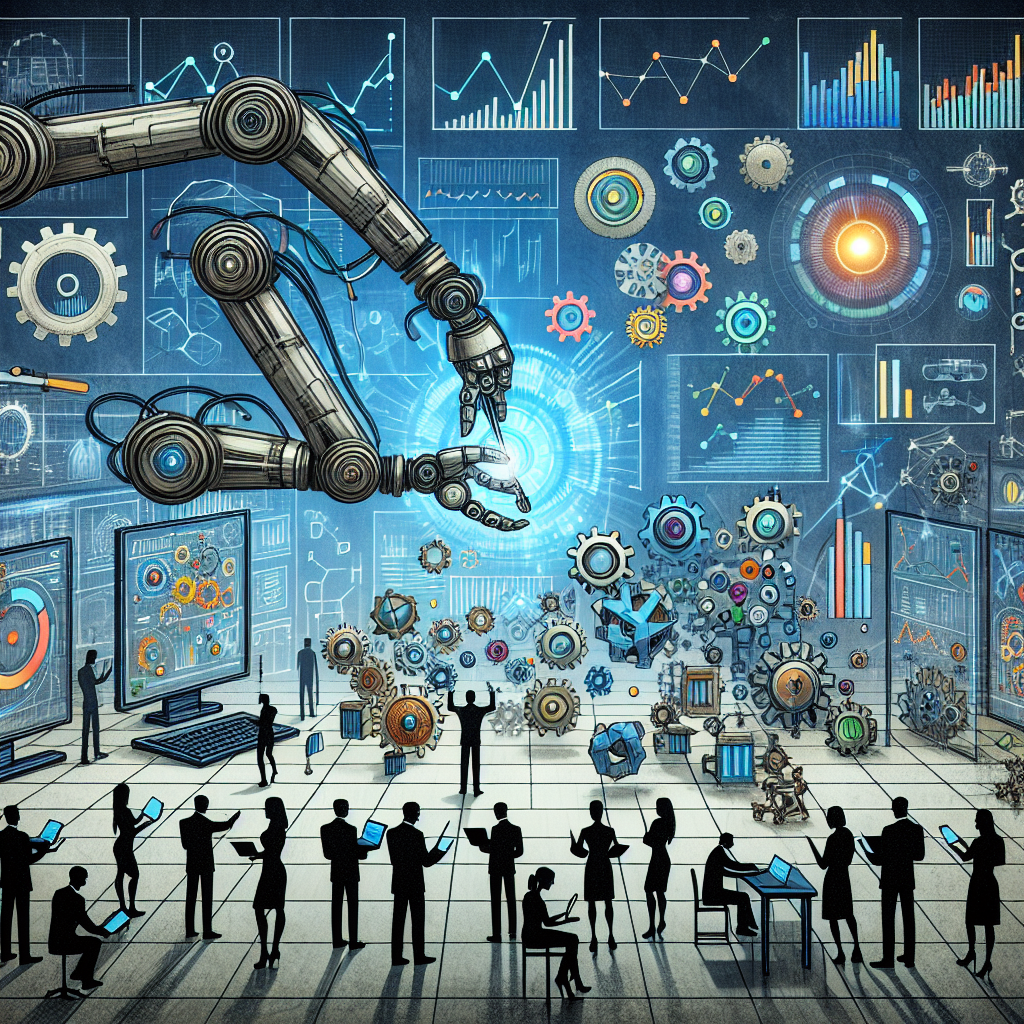Artificial General Intelligence (AGI) is a term that refers to machines with the ability to perform any intellectual task that a human can. This type of technology has the potential to revolutionize the way we work, as it can automate a wide range of tasks that were previously only possible for humans to do. In this article, we will explore how AGI is impacting the workplace and changing the way we work.
The Impact of AGI on the Workplace
AGI has the potential to greatly impact the workplace in a number of ways. One of the main benefits of AGI is its ability to automate tasks that are repetitive or mundane, freeing up employees to focus on more strategic and creative work. This can lead to increased productivity and efficiency in the workplace, as well as reduced costs for businesses.
Another benefit of AGI in the workplace is its ability to analyze and interpret data at a much faster pace than humans. This can lead to more accurate decision-making and better insights for businesses, as AGI can quickly process and analyze large amounts of data to identify trends and patterns.
AGI can also help businesses to streamline their operations and improve customer service. For example, AGI-powered chatbots can be used to provide instant customer support and answer common questions, freeing up employees to focus on more complex customer issues. AGI can also be used to automate tasks such as scheduling appointments, processing invoices, and managing inventory, saving businesses time and resources.
Overall, AGI has the potential to transform the workplace by automating tasks, improving decision-making, and enhancing productivity and efficiency. However, there are also challenges and concerns that come with the adoption of AGI in the workplace.
Challenges and Concerns of AGI in the Workplace
One of the main concerns surrounding AGI in the workplace is the potential impact on jobs. As machines become increasingly capable of performing tasks that were previously only possible for humans, there is a fear that many jobs will be automated, leading to job displacement and unemployment. While some jobs may be at risk of automation, others may be created as a result of the adoption of AGI, such as jobs related to the development and maintenance of AGI systems.
Another concern is the potential for bias in AGI systems. Since these systems are trained on data that reflects existing biases and inequalities, there is a risk that AGI systems may perpetuate these biases in decision-making processes. It is important for businesses to be aware of these biases and take steps to mitigate them in order to ensure fair and ethical use of AGI in the workplace.
Additionally, there are concerns about the security and privacy implications of AGI in the workplace. As AGI systems become more advanced and integrated into various business processes, there is a risk of data breaches and cyber attacks that could compromise sensitive information. Businesses need to implement robust security measures to protect their data and ensure the safe use of AGI systems in the workplace.
FAQs
Q: What are some examples of AGI in the workplace?
A: Some examples of AGI in the workplace include chatbots for customer service, automated data analysis and reporting, and robotic process automation for tasks such as invoice processing and inventory management.
Q: How can businesses prepare for the adoption of AGI in the workplace?
A: Businesses can prepare for the adoption of AGI in the workplace by investing in training and upskilling programs for employees, implementing robust security measures to protect data, and developing a clear strategy for integrating AGI into their business processes.
Q: What are the ethical considerations of using AGI in the workplace?
A: Ethical considerations of using AGI in the workplace include ensuring the fair and unbiased use of AGI systems, protecting the privacy and security of data, and considering the impact on jobs and society as a whole.
Q: Will AGI replace human workers in the future?
A: While AGI has the potential to automate certain tasks and roles, it is unlikely to completely replace human workers in the future. Instead, AGI is more likely to augment human capabilities and enable employees to focus on more strategic and creative work.
In conclusion, AGI has the potential to revolutionize the workplace by automating tasks, improving decision-making, and enhancing productivity and efficiency. While there are challenges and concerns surrounding the adoption of AGI in the workplace, businesses can take steps to mitigate these risks and ensure the ethical and responsible use of AGI systems. By embracing the potential of AGI, businesses can stay competitive and drive innovation in the ever-evolving workplace of the future.

